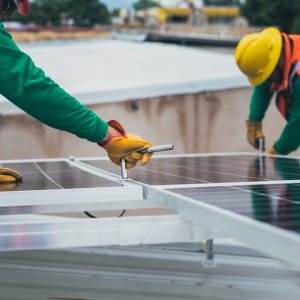
Mexico, EU Advance in Agriculture and Sustainability Agreements
 By Eliza Galeana | Junior Journalist & Industry Analyst -
Fri, 09/22/2023 - 14:43
By Eliza Galeana | Junior Journalist & Industry Analyst -
Fri, 09/22/2023 - 14:43
The Ministry of Agriculture and Rural Development (SADER) announced that the update of the Free Trade Agreement between Mexico and the European Union (TLCUEM) will provide greater opportunities for the diversification of agricultural exports.
The EU is a strategic partner for Mexico as an export market and supplier of agricultural products, said Lourdes Cruz, General Coordinator of International Affairs, SADER, during the workshop on Agriculture and Sustainable Food Systems organized by the European Commission’s Directorate-General for Health and Food Safety (DG SANTE) in coordination with SADER. “This partnership has allowed for the supplementation of domestic supply and the promotion of public policies to support producers and enhance sustainable food security,” says Cruz.
Cruz emphasized that the Mexican Government has prioritized inclusive agricultural policies that benefit vulnerable populations and producers, who had been excluded from agri-food value chains in the past. She also underscored that the upcoming implementation of the new version of TLCUEM will help solidify this objective, as well as provide greater opportunities for the diversification of agricultural exports.
Koen Van Dyck, Head of the Unit for Bilateral International Relations, DG SANTE, pointed out that the pandemic made it evident that there is a need to promote controlled and resilient food systems. In addition, the effects of climate change pose supply and security threats to agriculture, which makes it necessary to take strong actions to encourage greater global cooperation towards food security.
Van Dyck highlighted that the EU has launched the "Farm to Fork" strategy to contribute to achieving climate neutrality by 2050. “This strategy aims to transform the current food system into a sustainable model with environmental, health, social and economic benefits,” says Van Dyck.
Sol Ortiz, Director General of Policies, Prospects and Climate Change, SADER, noted that Mexico has taken a leading role in achieving the Sustainable Development Goals (SDG) of the UN’s 2030 Agenda. This achievement follows the public policies implemented at the domestic level, including the Strategic Plan for Climate Change in the Agri-food Sector (PLECCA), the National Strategy for Soil in Sustainable Agriculture (ENASAS) and the National Strategy for the Care and Sustainable Use of Pollinators (ENCUSP).
In 2022, Mexico's agri-food exports to EU countries accounted for €1.4 billion (US$1.49 billion) . The following products stood out among these exports: coffee, beer, tequila, mezcal, chickpeas, honey, tuna, orange juice, asparagus, avocado, mango, vegetable oils, strawberries, onions and chili peppers, among others.














